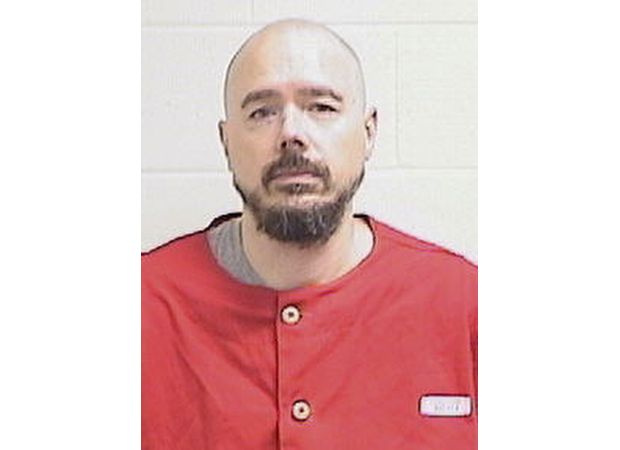Man to be executed in US for killing four, including his brother.
Joseph Corcoran has been awaiting execution for the killings since 1999.

Indiana officials are gearing up for the state's first execution in 15 years, as Joseph Corcoran, a death row inmate, is scheduled to be put to death on Wednesday. Corcoran, now 49, was sentenced to death in 1999 for the murder of his brother and three other men. This would also be the first execution in Indiana since 2009, as the previous 13 executions were carried out by federal officials at a federal prison in 2020 and 2021.
The execution is set to take place before sunrise at the Indiana State Prison, located in Michigan City, approximately 72km east of Chicago. This resumption of executions in Indiana has brought attention back to Corcoran's case and raised questions about how the state has been able to acquire the necessary drugs for lethal injections.
So what was Corcoran convicted of? Court records show that on July 26, 1997, 22-year-old Corcoran fatally shot his brother, 30-year-old James Corcoran, as well as three other men: Douglas A Stillwell, 30, Timothy G Bricker, 30, and Robert Scott Turner, 32. According to reports, Corcoran was under intense stress due to his sister's upcoming marriage to Turner, which would require him to move out of the Fort Wayne, Indiana home he shared with his brother and sister.
Witnesses say that Corcoran overheard his brother and others talking about him, which led him to load his rifle and shoot all four men. While in jail, Corcoran reportedly confessed to another crime, the 1992 murder of his parents in northern Indiana's Steuben County. However, he was acquitted of these charges.
Corcoran's sister, Kelly Ernst, who lost her brother and fiancé in the 1997 shootings, has chosen not to discuss whether she believes her brother is responsible for their parents' murder. However, she does believe that the death penalty should be abolished and that her brother's execution will not bring closure or change anything. She has also decided not to attend his execution, stating that she has not been in contact with her brother for 10 years and believes he suffers from a serious mental illness.
So why did Indiana stop executions in the first place? The last execution in the state was in 2009 when Matthew Wrinkles was put to death for killing his wife, her brother, and sister-in-law in 1994. State officials stated that they could not continue with executions due to a lack of drugs available for lethal injections. This has been a nationwide issue as pharmaceutical companies, particularly in Europe, have refused to sell their products for this purpose.
As a result, some states have turned to compounding pharmacies, which create drugs specifically for a client. Others have switched to more easily accessible drugs, such as pentobarbital or midazolam, which have been criticized for causing severe pain during executions. Indiana has chosen to use pentobarbital for Corcoran's execution, following in the footsteps of the federal government, which used the same drug for the 13 executions carried out during the final six months of former President Donald Trump's first term.
However, the source of the pentobarbital remains a secret, as the state has refused to disclose where they obtained the drug. When asked, the Indiana Department of Correction directed the Associated Press to a state law that labels the source of lethal injection drugs as confidential. In June, Governor Eric Holcomb announced that the state had acquired the drug and requested the Indiana Supreme Court to set a date for Corcoran's execution. The high court set the execution date for December 18.
According to state law, there is a specific process and timing for executions, and only certain individuals are allowed to be present. This includes the prison warden, selected execution assistants, a prison physician, an additional physician, the condemned person's spiritual advisor, and the prison chaplain. Up to five friends or relatives of the person being executed and up to eight relatives of the victims are also allowed to witness the execution.
Despite multiple attempts by Corcoran's lawyers to argue that he is not competent to be executed due to his long-standing paranoid schizophrenia, the Indiana Supreme Court has denied their petitions. In a handwritten affidavit to the justices, Corcoran has stated that he accepts the findings of all the appellate courts and is guilty of the crime he was convicted of. However, his lawyers have filed a last-minute petition in US District Court to stop the execution and hold a hearing to determine the constitutionality of executing a person with a serious mental illness.
Indiana is one of only two states that do not allow members of the media to witness executions, which has been criticized by the Death Penalty Information Centre as it limits the public's ability to observe how the government carries out these executions. With the execution date quickly approaching, it remains to be seen whether Corcoran will be put to death or if his lawyers will be able to stop the execution.


